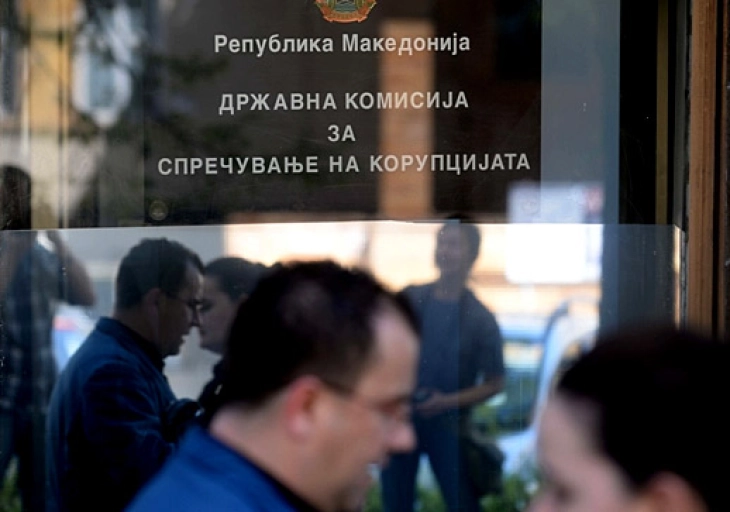Anti-Corruption Commission urges elected officials to respect constitutional and legal obligations
- The State Commission for Prevention of Corruption (SCPC) urges elected officials to abide by the principles, obligations, and prohibitions stipulated in the Constitution of the Republic of North Macedonia, the Law on Prevention of Corruption and Conflict of Interest, the Law on Members of Parliament, the Law on the Parliament, and the Electoral Code.
- Post By Silvana Kocovska
- 18:28, 31 May, 2024

Skopje, 31 May 2024 (MIA) - The State Commission for Prevention of Corruption (SCPC) urges elected officials to abide by the principles, obligations, and prohibitions stipulated in the Constitution of the Republic of North Macedonia, the Law on Prevention of Corruption and Conflict of Interest, the Law on Members of Parliament, the Law on the Parliament, and the Electoral Code.
Following the conclusion of the parliamentary elections in the Assembly of North Macedonia, the SCPC reminds in a press release to several constitutional principles, notably the incompatibility of holding other public functions or professions alongside the positions of Prime Minister and minister.
The SCPC reminds of the Law on Prevention of Corruption and Conflict of Interest, which obliges them to respect the principle of integrity, meaning they must be vigilant about potential conflicts of interest while performing their duties. They are prohibited from being guided by personal, familial, religious, partisan, or ethnic interests, nor by pressures or promises from superiors or other individuals while exercising their public powers and duties.
The SCPC emphasizes that any elected or appointed individual is required to adhere to the rules regarding the incompatibility of their position with other functions or activities outlined in the Constitution and laws during their tenure.
“The position President of the Republic, President of the Government of the Republic of Macedonia, Minister, Member of the Parliament, Member of the local council, Mayor, Judge, Public Prosecutor, Public Attorney, Ombudsman and other positions that are elected or appointed by the Parliament of the Republic of Macedonia, Government of 23 the Republic of Macedonia or bodies of the local self-government are incompatible to each other,” the SCPC said in a press release.
It also adds that the previous work position of the elected or appointed persons, whose functions are performed professionally, shall cease temporarily.
The SCPC also reminds of the Law on Members of Parliament of North Macedonia, according to which the function of a member of parliament is incompatible with the function of President, Prime Minister, minister, judge of the Constitutional Court, judge, ombudsman, public prosecutor, and other holders of positions appointed or nominated by the Parliament and Government of North Macedonia, with a member of municipal council and mayor of municipality, or the City of Skopje, and employees in professional and administrative positions in the state administration bodies.
In connection with the Law on the Parliament, the SCPC emphasized that the role of a member of parliament is incompatible with holding other public functions or professions as determined by law.
In regard to the Electoral Code, the SCPC notes that the positions of a member of parliament, council member, and mayor are incompatible with the positions of President of the Republic, Prime Minister, minister, judge, public prosecutor, public defender, ombudsman, and other holders of positions appointed or nominated by the Parliament and Government of North Macedonia.
“Taking into account all the aforementioned laws, the Anti-Corruption Commission points out that the Constitution and laws of North Macedonia should equally apply to all citizens of the country, including current and former officials. Therefore, individuals holding the highest state functions and exercising public powers are called upon to adhere to the obligation of respecting the principles of legality and integrity,” as stated in the SCPC press release.
Photo: MIA archive







